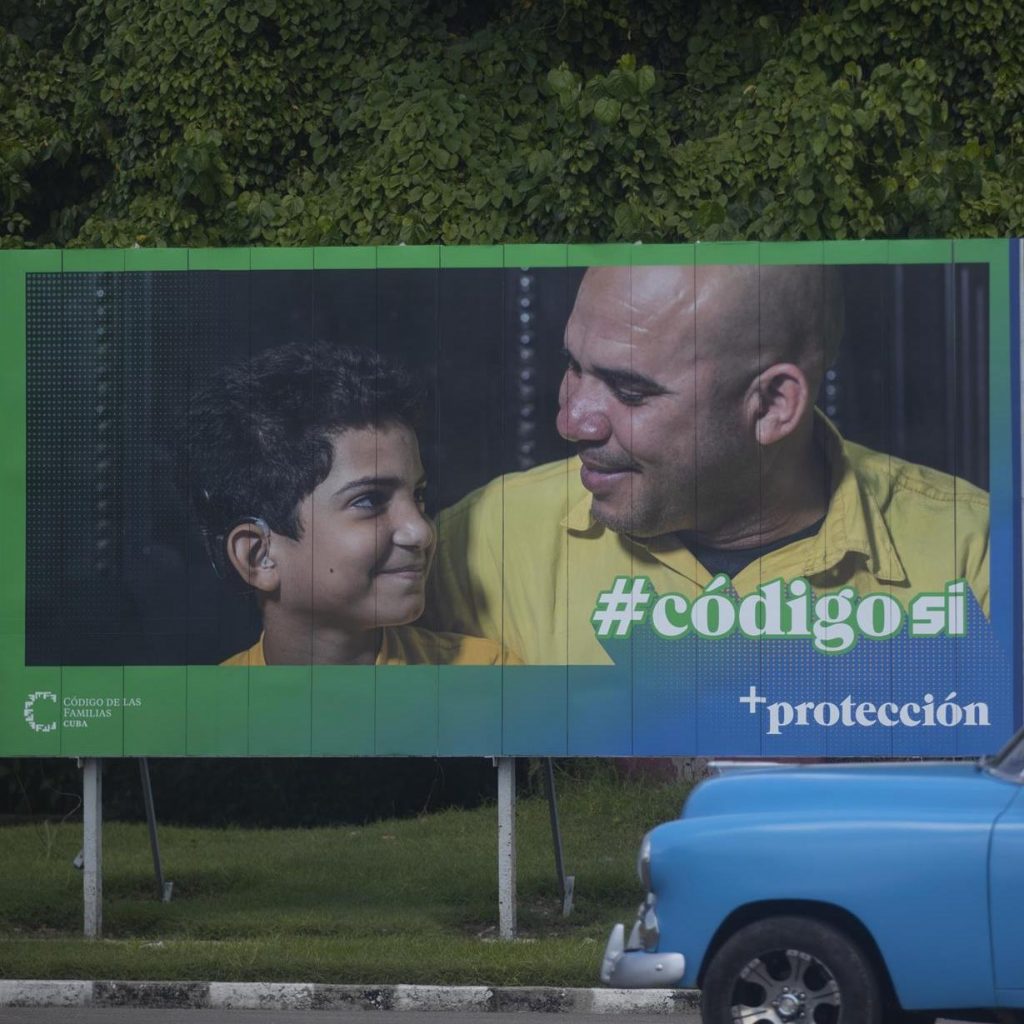In a historic referendum, Cubans have voted to accept a new family law by 66% which advances LGBT+ rights, women’s rights, the rights of children and the elderly –– and gives Cuba some of the most progressive laws around the family in the world. The new Family Code has updated the island’s existing regulations on marriage, divorce, adoption, and other family-related regulations, including by legalising same-sex marriage, expanding the rights of children, allowing assisted pregnancies, fighting gender-based violence, and protecting the elderly.
How was the Family Code written?
When Cuba underwent the broad popular consultation that approved their current Constitution, it was clear that there was a need to update their Family Law from 1975 to be more in line with and reflect the growing diversity of Cuban families over time.
The draft had more than 20 versions which is the result of an extensive consultation processes through trade unions and community groups and which the Cuban Minister for Justice, Oscar Manuel Silveira Martínez said are “contributively, intense and a lot of work, but it is essential to achieve a draft of high quality.”
Since 16 July 2019, the temporary working group that was coordinated by the Ministry of Justice and made up of renowned experts from the Supreme People’s Court, the Attorney General’s Office, the Ministry of Public Health, the Ministry of Foreign Affairs, the National Organisation of Collective Law Firms, the National Union of Jurists of Cuba, the Federation of Cuban Women, the National Centre for Sexual Education, the National Office of Statistics and Information, and the Faculty of Law of the University of Havana, which prepared the proposals of policies and various versions of the draft of the Family Code.
Before the popular referendum on 25 September, the Family Code underwent a process of consultation whereby it was redrafted and discussed at 79,000 neighbourhood meetings to obtain the opinions of the population as part of a genuinely democratic exercise of Cuba’s political system. This is a level of democratic engagement that we cannot imagine on the same scale in Britain whereby ordinary working people have virtually no direct say in our laws. The popular referendum on the Family Code saw over 6 million Cuban’s voting (74% of the registered voters). 66.87% of those who voted, voted to accept the Family Code which genuinely reflects the attitudes of the population in Cuba. This result may not have been possible without the level of participatory democracy in writing this Family Code and the discussions that took place in different communities, workplaces, and families.
What is the Family Law?
The new Family Law will recognise the existence in Cuba of multiple family structures that break from the more traditional models. It thus expands the rights of families, and provides them with opportunities –– such as same-sex adoption. The Communist Party of Cuba’s Central Committee states in Granma (its official publication) that the Code will honour the bonds of friendship and love –– on which families are built.
The now-passed Law states, “Different family structures, based on a relationship of affection, are created among relatives, wherever the nature of the relationship, and between spouses or in common-law unions… The members of the families are bound to perform family and societal duties on the basis of love, affection, consideration, solidarity, fraternity, co-participation, protection, responsibility and mutual respect.”
This emphasises that the success of the family is not due to its structure, but how different roles and responsibilities in the family are undertaken. This Code gives the opportunity to give legal rights to families that sit outside of the traditional nuclear family recognising that families of single parents, spouses of the same-sex or grandparents are in charge of raising children are no way inferior ways of raising children that families of two heterosexual parents. It also allows for legal surrogacy as long as no monetary benefit is received. Cuba has redefined families as places where people love and take care of each other.
“All Families, all models”
The legalisation of this Family Code in Cuba reflects the attitudes of the population, showing how mass education campaigns from CENESEX (Cuba’s Centre for Sex Education) around the issues of LGBT+ rights and women’s rights have been successful.
While such rights are being infringed upon globally, Cuba leads the way in instituting progressive laws around these issues. Elsewhere, under capitalism in the West, LGBT+ issues are commodified for profit and women are exploited by monetised surrogacy.
This historic result reminds us that it is socialism that will lead the way in the liberation for all.
¡Viva Cuba and viva la revolucion!
Micaela Tracey-Ramos, is a member of the YCL’s Merseyside branch



